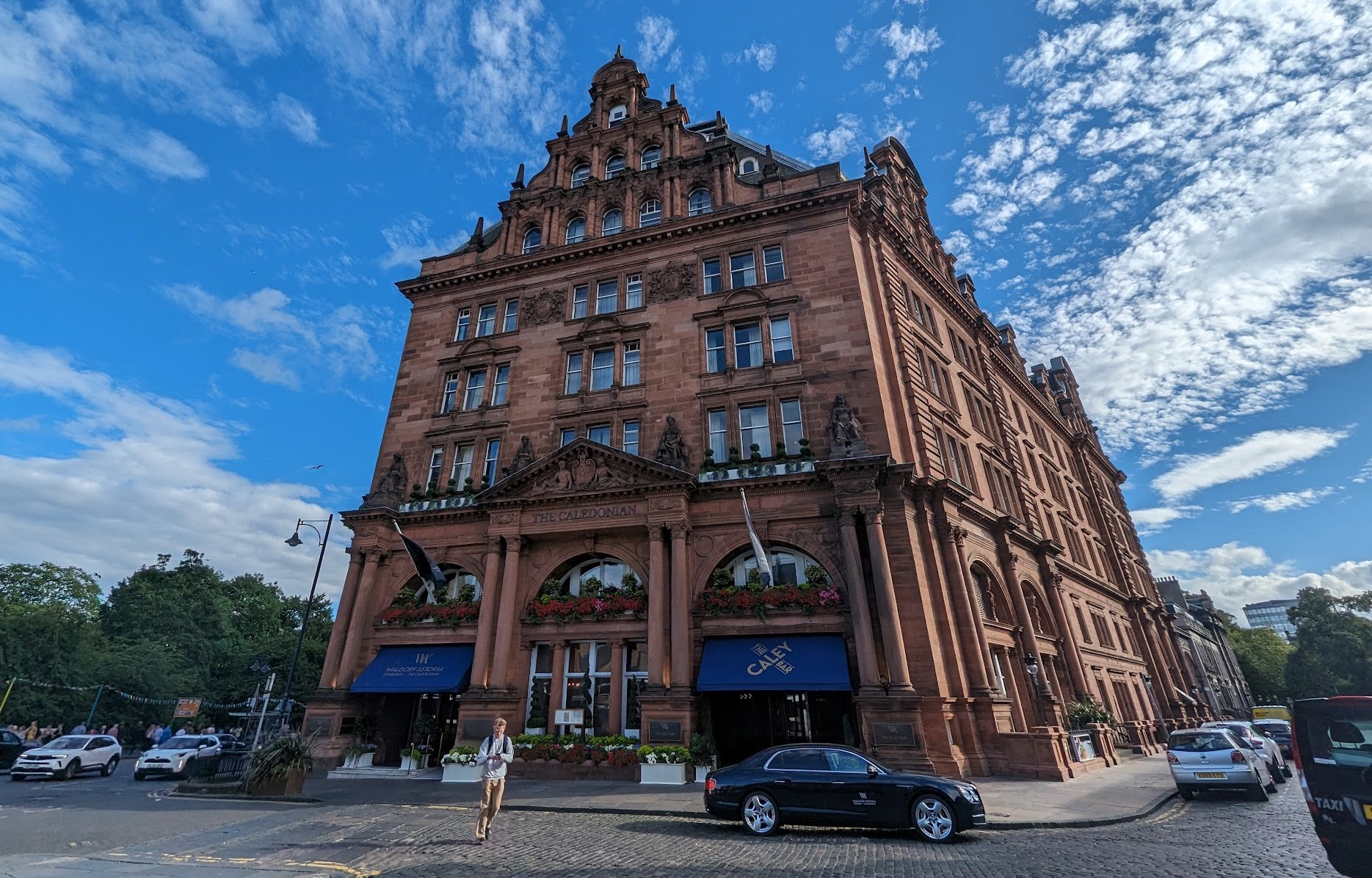RSM: Scotland hotel staff costs jump in January even before employers’ NIC rise

The Caledonian Edinburgh (credit: George Iordanov-Nalbantov)
Staff costs in Scotland’s hotel sector jumped in January, hitting profits even before April’s rise in employers’ National Insurance contributions (NICs) and National Minimum Wage (NMW), meaning pressures are only set to intensify, according to the RSM Hotels Tracker.
The data, which is compiled and produced by Hotstats and analysed by RSM UK, shows total Scottish hotel payroll costs (as a percentage of total revenue) rose from 31.2% in December 2024 to 46.4% in January 2025, and from 28.8% to 39.6% for the wider UK market. Year-on-year, payroll costs (as a % of revenue) increased from 45.4% in January 2024 to 46.4% in January 2025 in Scotland.
Occupancy of Scottish hotels was up slightly from 58% to 58.7% in January year-on-year, similar to the UK which saw a slight uplift from 61.2% to 62% for the same period.
Average daily rates (ADR) of occupied rooms in Scotland saw a small increase from £89.54 to £91.57 in January year-on-year. Gross operating profits (GOP) were also relatively flat, up slightly from 2.5% to 3% in January year-on-year.

Stuart McCallum
Stuart McCallum, partner and head of consumer markets in Scotland at RSM UK, said: “Scotland’s hotel industry experienced a slight lull in January, which is reflective of it being a typically quiet month for the sector.
“However, it’s encouraging to see a modest uptick in occupancy and average daily rates. But, the rapid rise in costs is outpacing the growth in revenues, so higher room rates are yet to translate into increased profits. Labour costs in particular saw a spike in January, driven by robust wage growth, which will impact the hotel sector given the size of the workforce.
“Following a successful 2024, the year has started on the back foot. Cost pressures are set to rise due to the increase in employers’ NICs and NMW in April. Additionally, geopolitical tensions are causing turbulence in the global market, leading to uncertainty.
“However, golf tourism contributes significantly to Scotland’s economy and hospitality industry, attracting a large number of tourists from the UK and overseas, especially from the US. The recent meeting between Eric Trump and John Swinney is therefore timely, increasing visibility of Scotland and its various golf resorts.”
He continued: “It’s clear that hoteliers are already facing challenges with passing on additional costs, so they need to look at other options to mitigate these headwinds without putting off consumers.
“The good news is that consumers continue to prioritise travel and want to go away, so demand should stay strong. Scotland has also seen an increase in the number of direct flights to Edinburgh, ensuring strong numbers of international tourists, but it’s important this success is shared across towns and cities to ensure a balanced and sustainable tourism industry.”
Thomas Pugh, economist at RSM UK, added: “With all the business and consumer surveys pointing to growth continuing to stagnate at the start of the year, it is encouraging to see even a small up tick in hotel activity.
“Combining this with the large rise in retail sales in January and the increase in consumer borrowing, we could be seeing the green shoots of a rise in consumer spending. However, much will depend on whether households ‘animal spirits’ can be revived or if consumer confidence remains in the doldrums.
“Overall, we expect a gradual rise in the economy this year as the budgeted increase in government spending and investment, and the strong real earnings growth, starts to filter through into stronger consumer spending.
“However, trade tariffs, economic uncertainty and volatility in financial markets will all weigh on growth this year and the big risk is that a global trade war has a stagflationary impact on the UK, even if we avoid direct tariffs.”








